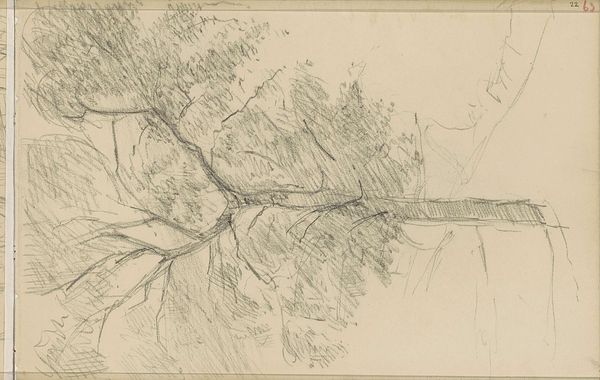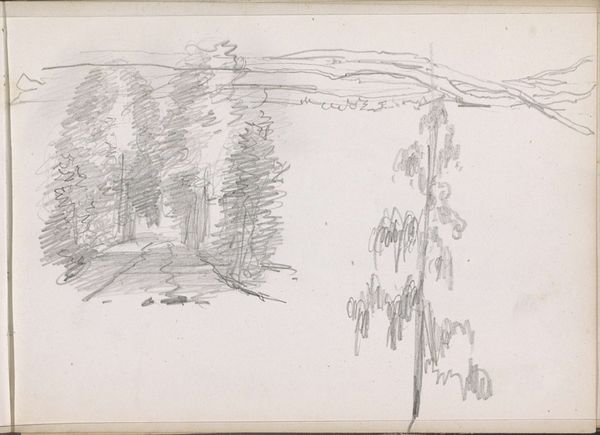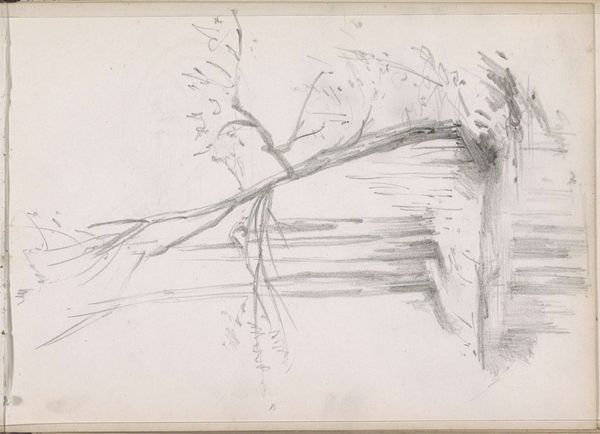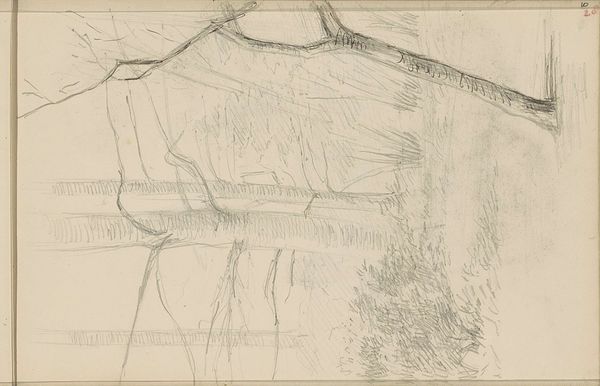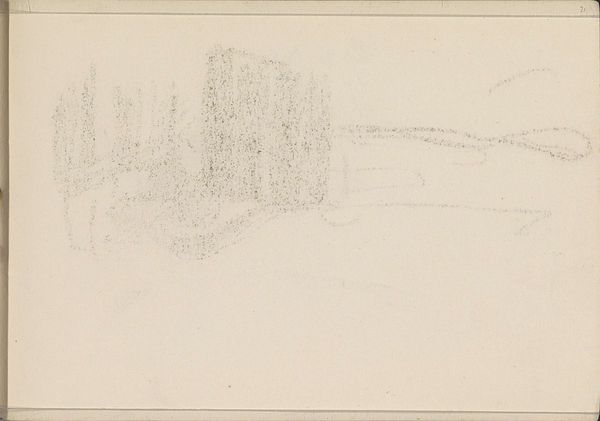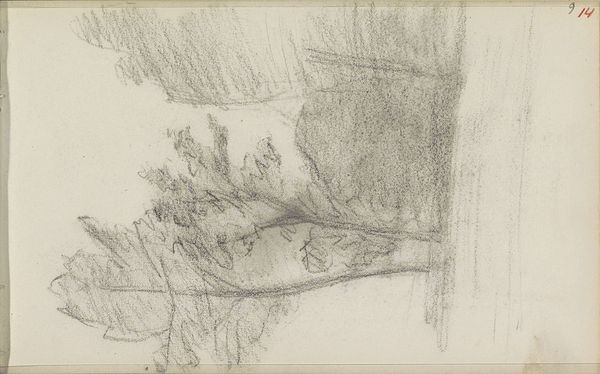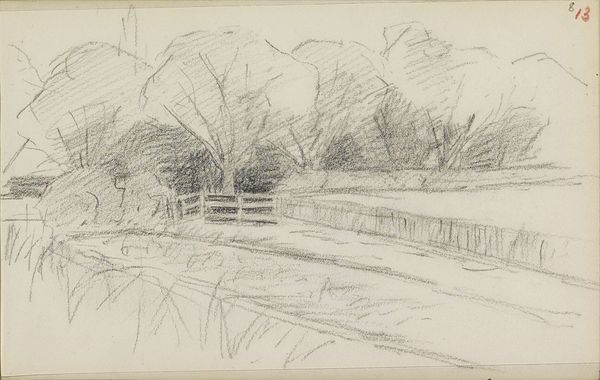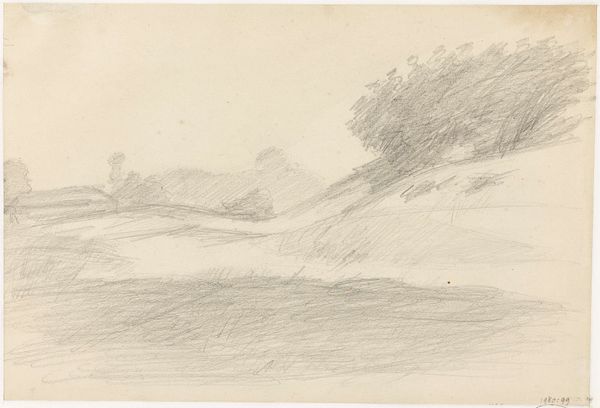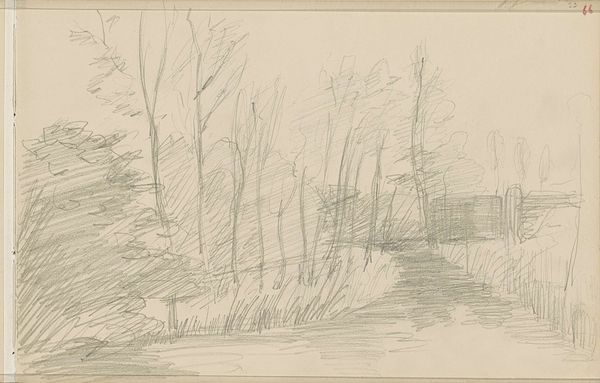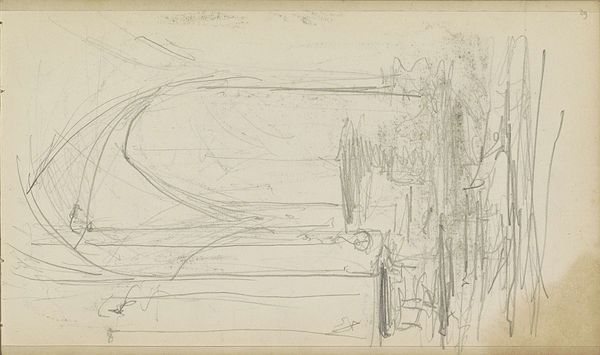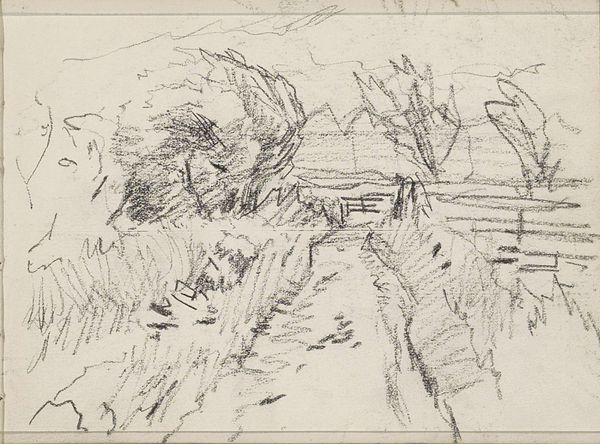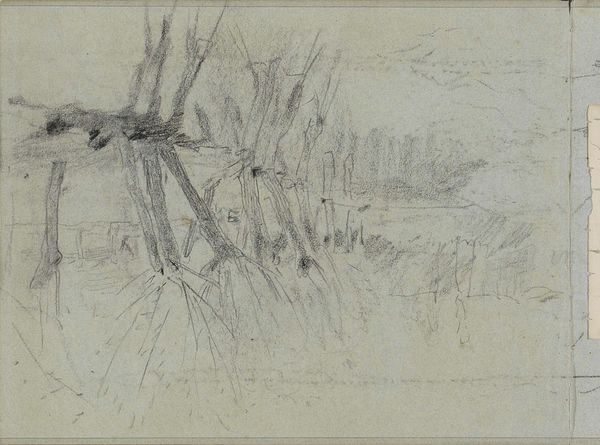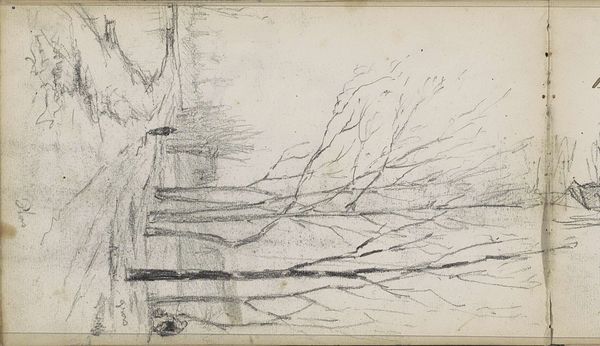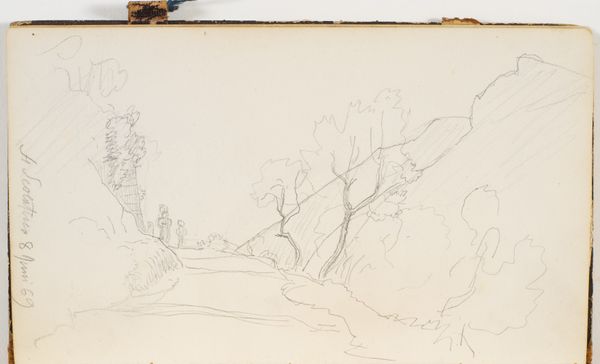
drawing, pencil
#
drawing
#
impressionism
#
landscape
#
figuration
#
pencil
#
line
#
realism
Dimensions: height 142 mm, width 218 mm
Copyright: Rijks Museum: Open Domain
Curator: This Willem Cornelis Rip drawing, "Gezelschap onder het bladerdek van een boom," dating from around 1874-1875, presents such delicate lines! Editor: Yes, the fleeting quality of the pencil strokes gives it an ephemeral feeling, almost dreamlike. How do you interpret this work? Curator: From a materialist perspective, it’s crucial to consider the readily available and inexpensive nature of pencil and paper. Its portability would have allowed Rip to rapidly capture fleeting impressions of the landscape and the leisured classes that occupied it. The accessibility of the materials democratized art-making. Do you see the labor implied in such a sketch? Editor: I do, in the repetitive, almost scribbled shading used to build the forms. It definitely moves past a romantic notion of artistic genius and toward acknowledging the physical effort. What statement was Rip attempting to communicate using this particular style? Curator: The sketch aesthetic challenges conventional painting. By using preliminary mark-making as a final piece, Rip brings what was initially deemed beneath notice to the forefront. What happens to our understanding of art when “mere” sketches become worthy of display and appreciation? This reflects a shifting cultural value. What are your thoughts on that idea? Editor: It shifts the value from the polished product to the process of art-making itself, perhaps mirroring a rising interest in the working class's experience. It's thought-provoking. Curator: Exactly! The democratization of materials is key to broadening the definition of art itself, impacting what stories are valued and told. I hadn’t considered its relationship with the representation of labor before; your perspective is invaluable. Editor: And seeing the economic context changes my reading of its seemingly lighthearted impressionistic qualities. Thanks so much!
Comments
No comments
Be the first to comment and join the conversation on the ultimate creative platform.
